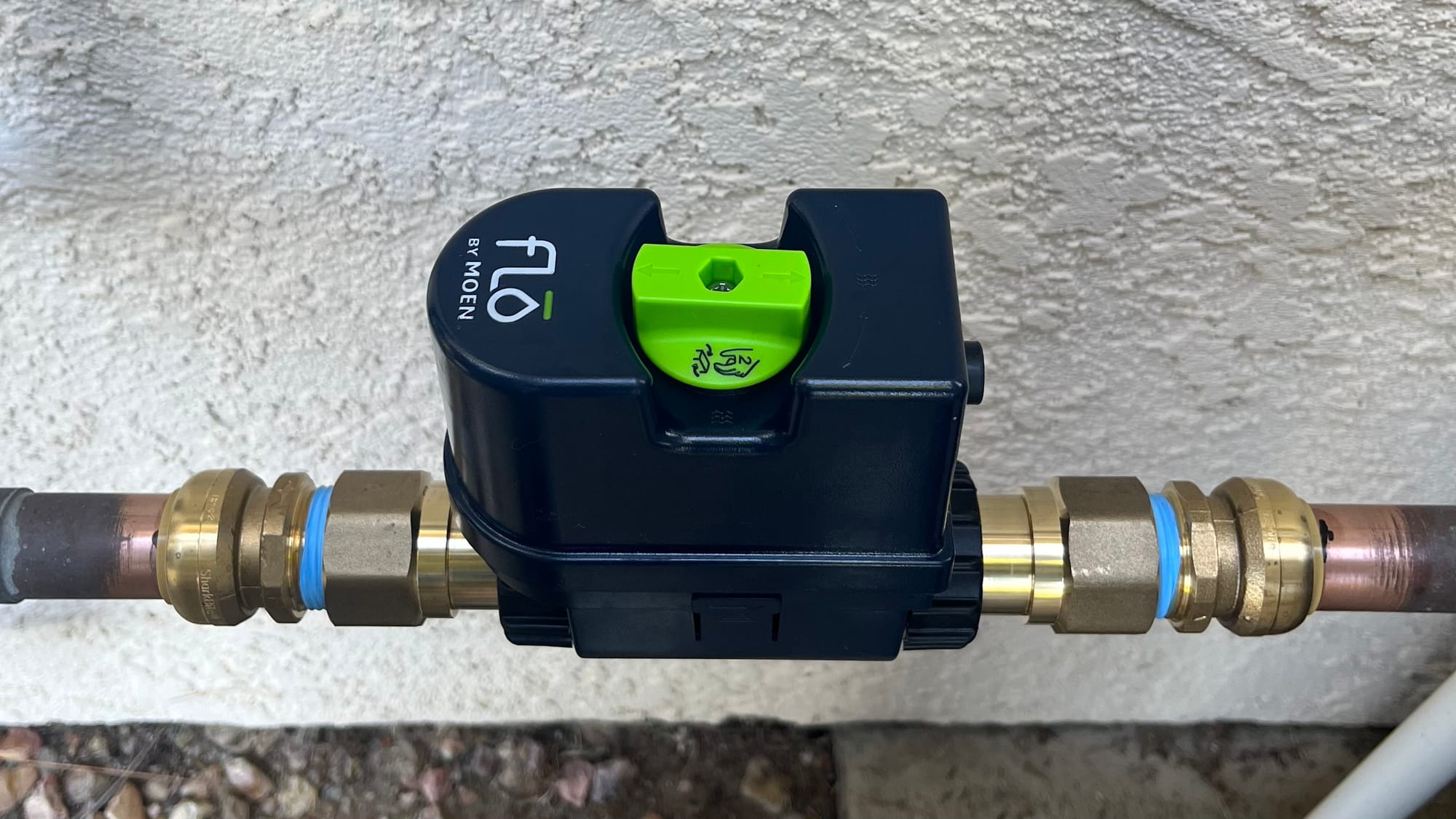6 reasons a water flow alarm is a great idea for your home
I found out about a bad hot water pressure release valve after installing mine.

Water flow alarms sense higher than usual flow rates and can shut off water flow, and are installed where the plumbing system enters the home. They can be controlled manually or through an app.
These are different from water leak detection, which is done under the sink or near toilets and washing machines. Both serve different purposes.
Reasons you should consider one:
- You’ll find out quickly if water is running when it shouldn't. For example, if you see water use at night when everyone is asleep, and the water is off, you might suspect running toilets or a leak elsewhere.
- Small leaks add up fast.
- On average, 1 in 60 insurance claims is for water damage or freezing, compared to 1 in 385 for fire and lightning. To be fair, though, the severity of the claims and the costs are lower (Source: Insurance Information Institute).
- If you leave home, you can have peace of mind that water isn’t flowing.
- Your water district won’t call you and inform you of an expensive bill incoming.
- Some insurance carriers offer discounts for water flow alarms because it ultimately saves them on claims, too.
Do you DIY or hire a licensed professional?
There are a few on the market to choose from and can be installed by a plumber or service like Beagle (not affiliated, just an example), though if you’re comfortable cutting copper it’s not too challenging.
The one below is a Moen Flo installed with Sharkbite fittings. No copper sweating is required, and when done right, and no leaks when done right. This was a DIY project, but a licensed plumber can also install them.
Remember that some of these are battery-operated, and others require a power source nearby.
There are four varieties of water flow alarms:
Smart Point of Leak Detection
This includes the installation of water leak sensors in areas containing plumbing devices, fixtures, and/or outlets. In the event of a leak, the device notifies the homeowner.
Centrally Monitored Point of Leak Detection
This includes the installation of water leak sensors in areas containing plumbing devices, fixtures, and/or outlets. The system automatically alerts the designated security company in the event of a leak.
Smart or Centrally Monitored Whole Home Water Flow Leak Detection
Constantly monitors the water flow for the entire property or home and automatically alerts the homeowner and/or designated security company when an event occurs.
Smart or Centrally Monitored Leak Detection and Shutoff
Constantly monitors the water flow for the entire property or home and automatically alerts the homeowner and/or designated security company when an event occurs IN ADDITION to shutting off the corresponding water valve.
Why do insurance companies like these?
Water flow alarms may be required on new homes, regardless of loss history.
Some carriers, like Chubb, partner with water flow alarm companies to provide discounts on the device and installation.


